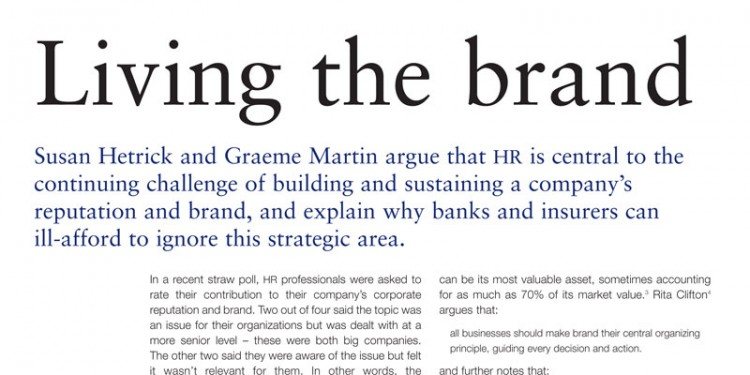Susan Hetrick and Graeme Martin argue that HR is central to the continuing challenge of building and sustaining a company’s reputation and brand, and explain why banks and insurers can ill-afford to ignore this strategic area.
In a recent straw poll, HR professionals were asked to rate their contribution to their company’s corporate reputation and brand. Two out of four said the topic was an issue for their organizations but was dealt with at a more senior level – these were both big companies. The other two said they were aware of the issue but felt it wasn’t relevant for them. In other words, the “important but I’ll deal with it when I have time” category.
Yet company boards are increasingly focusing their resources on building a strong brand and corporate reputation, which are viewed as sources of sustainable competitive advantage. Brand as corporate strategy is seen in the success of companies such as Virgin and Tesco. Both have been able to use their brand to breed consumer loyalty through their own core product range, and sustain this in new diversified businesses. Tesco now sells food in markets as diverse as Poland, Hungary and Thailand, and has broadened its brand in Britain to encompass convenience stores, mobile phones, PCs and all sorts of financial products; Virgin has diversified from selling records to train and air travel, soft drinks and wedding services.
People build brands
In rather different ways, both companies have depended not only on consummate marketing skills but also distinctive approaches to human resource issues, from which financial services companies can learn important lessons. After all, who keeps (or denies) the promises made by the marketing teams?
To read the full article, please download the PDF above.

